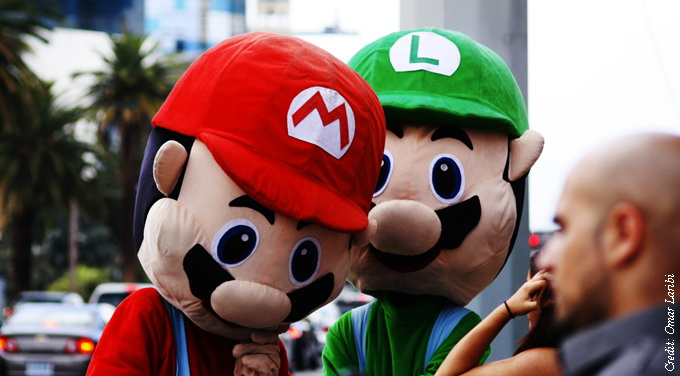Press pause on your Playstation 4
Christmas seemed to have spilled over into the New Year for Japanese video game console makers. On Wednesday, China temporarily lifted its 14-year ban on the sale of consoles and video games getting some investors excited about the prospect for the gaming giants in the world’s third-largest gaming market. Shares of Nintendo (7974.TYO), which has suffered poor sales of its games consoles in developed markets in recent years, saw its shares surge 7.5% on the news. The lifting of the ban will now allow Nintendo and its peer Sony (SNE.NYSE, 6758.TYO) to sell consoles in China manufactured in the Shanghai free trade zone. But perhaps the firms should press the pause button on their controllers and maybe not get so excited by the news. “This is not a big deal for any of these companies,” Atul Goyal, a Singapore-based analyst at Jefferies, said in an email, noting that Sony and Nintendo lose money on the hardware itself and make it on the actual games. Copyright piracy in China increases the risk for these firms and anyway very few Chinese are willing to pay US$30-60 for a game. “Because of this reason, China is not a meaningful market in terms of earnings.” Other problems they can encounter include state censors who will be evaluating games and making sure they are suitable for a Chinese audience. Goyal has a “buy” rating on Nintendo and “hold” on Sony but “this news does not change my view [or] valuations.”
These roads aren’t paved with gold
If, as folk tales have it, the streets of London were once paved with gold, then those of China are most certainly paved with cement, which, depending on your view, could be a more profitable bet than the precious metal. That’s what owners of some of China’s more than 2,500 small and medium cement makers could be hoping for after industry leader Anhui Conch Cement (0914.HKG, 600585.SHA) this week announced aggressive expansion plans through acquisitions, taking advantage of a government directive to push through industry consolidation in a bid to curb emissions. China’s largest cement producer by market value plans to add up to 30 million tons of extra production capacity to its already existing 209 million ton capacity. Stuwart Chen, a Hong Kong-based analyst for Sun Hung Kai Financial, said in an email that picking out specific targets would be hard given the huge variety, although he noted that “it’s not likely for the company to acquire those listed peers,” potentially ruling out the likes of Sichuan Shuangma (000935.SHE) and Tangshan Jidong (000401.SHE). For investors interested in getting in on the ground, cement firms in western China are a likely target. “Geographically, we think Anhui Conch will focus more on Western China, given stronger FAI growth outlook in the west; the company currently has less exposure there; [and] lower industrial concentration for cement industry in western China compared to eastern China.” Chen has a “buy” rating on Anhui Conch.
Some Chinese ship skippers still sailing
Amid the horror stories of failing Chinese shipyards and shipping lines, one area of maritime success has largely been overlooked. Port operators, which manage container ports and handle storage facilities, are doing well and are increasingly looking to expand overseas. COSCO Pacific (1199.HKG) and China Merchants Holdings International (0144.HKG) are driving this trend. “They are trying to transform into global port operators,” Lawrence Li, senior transport analyst at UOB Kay Hian, said on the phone from Shanghai. Should they be successful they would put themselves in a strong position to tap into growing trade from emerging economies. “ASEAN and African ports will be major targets [for the firms] because of booming economies and growing inter-Asian trade,” noted Li. Still, this could all take time. Foreign policy risks, cultural differences and the need for state approval for any deals means the process will be slow, said Li.
IPO Watch
In the coming week Miko International Holdings (1247.HKG) will hit the Hong Kong stock exchange. The manufacturer of mid-to-high end children’s clothing sold on the mainland will likely benefit from changes to China’s one-child policy, which came into effect recently. Some analysts predict this could result in an additional 9-15 million births in the coming years. Sinolife United (3332.HKG), a fast growing nutritional supplements retailer, is up as well. The firm is “well positioned to capitalize on high growth opportunities in the large and fast-growing nutritional supplements industry in China,” according to a note from Kim Eng Securities.


